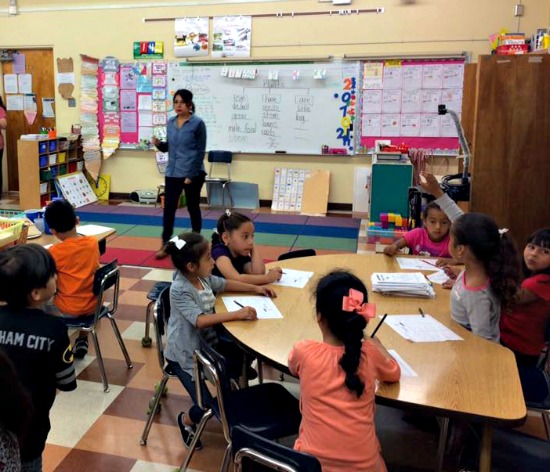On Thursday, LAUSD reached a settlement that will send an extra $151 million to 50 schools that serve students who are low-income, English learners, and foster youth. This settlement comes out of a 2015 suit by advocacy groups that accused the district of using money that was intended for services to meet the needs of some of the most vulnerable students for general expenses.
According to a report from KPCC:
“Thursday’s settlement does not settle the question of whether the plaintiffs legal argument was right. L.A. Unified officials have argued counting that special education spending toward its obligations was justified, since nearly four out of every five students in special education is also a low-income student, foster child or English learner. L.A. Unified attorneys said Thursday the district hasn’t budged from that position.
“By us doing our calculations that way, [the plaintiffs] felt certain schools were not being given their share of funds,” said Christine Wood, assistant general counsel for L.A. Unified.
“What’s changed,” she added, “is … the settlement agreement allows us to give funds back to the school in a way that satisfies petitioners concerns and allows us to move forward in keeping kids first. In that way, it was a win-win and why we were able to get to an agreement.”
The plaintiffs — L.A. Unified parent Reyna Frias, the Community Coalition of South Los Angeles, and their attorneys at the ACLU and the non-profit firm Public Advocates — also said the deal represents a significant victory.
“What we’re hoping,” said Sylvia Torres-Guillen, the ACLU of California’s director of education equity, “is that this will serve as a message to districts across the state that although the law provides local control, there’s still accountability and that districts need to meaningfully focus services on high-needs students.””
At La Comadre, our hope is that districts do follow the intent of the Local Control Funding Formula (LCFF), which obligates districts to spend money on “high needs” students. The funding formula requires districts to improve programs and services beyond what the state and federal policies separately obligated the district to spend for special education. The LCFF is supposed to address inequities and implement programs to meet the needs of California’s diverse students.
Parents and community members often have to sue to get districts to follow the law. Under the teacher union dominated (UTLA) school board, the funds were not reaching the students. With a more reform oriented board, this injustice is being remedied.
We are all in this together with you. We want to be a resource for you and for all of the children you love. Whether you need some info or you have info to share, you know where to go…LA Comadre.
Latest posts by La Comadre (see all)
- Cómo está Regresando la Escuela de un Salón - July 28, 2022
- ¿Se Debe Exigir a los Estudiantes recitar el Juramento a la Bandera? - June 10, 2022
- 5 Aplicaciones de Salud Mental y Bienestar para descargar ahora Mismo - May 5, 2022
- How the One Room Schoolhouse Is Making a Comeback - May 5, 2022
- El Dinero Importa: Donación de $ 1 millón a Programas de Educación Financiera en LAUSD - April 25, 2022

